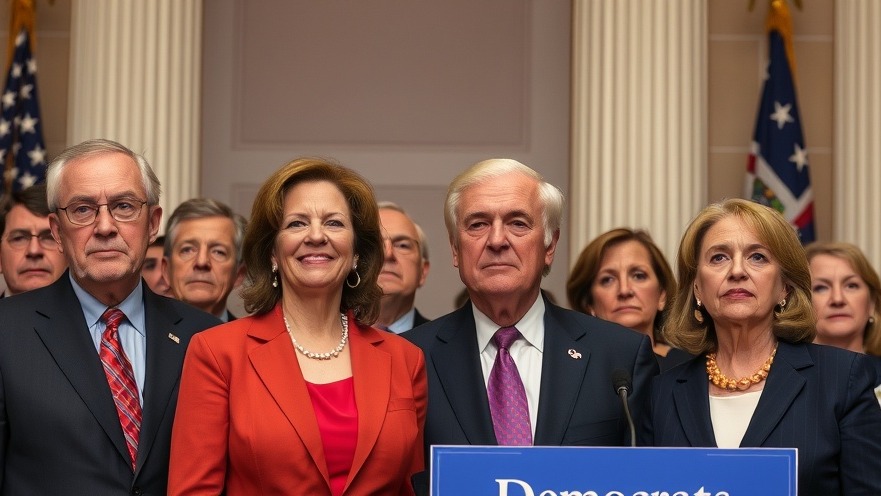
Texas GOP's Bold Challenge: A Historical Perspective
The Texas GOP is on the verge of potentially barring some of its own lawmakers from running in the 2026 primaries, an act that challenges nearly a century of judicial precedent. This move revives memories of 1930 when the Texas Democratic Party faced a similar crisis with State Senator Thomas B. Love, who had campaigned for Republican presidential nominee Herbert Hoover. Back then, the Texas Supreme Court firmly ruled against the Democrats, emphasizing that Texas election laws are designed to “jealously guard the voters’ power.” This historical backdrop highlights the foundational principle that political parties must respect the electorate’s choices.
Modern Implications: Censures and Loyalty Tests
Fast forward to today, the Republican Party of Texas, fueled by grassroots discontent, is considering implementing censorship of lawmakers based on perceived party loyalty. The State Republican Executive Committee (SREC) will soon meet to decide on this contentious issue, a move that has sparked intense debate within the party. Critics argue that such actions undermine democracy by allowing a select group to dictate electoral choices that should belong to the voters. As Smith County GOP chair David Stein points out, “I don’t want 64 members of the SREC deciding who gets elected” in his county.
The Balance of Power: Party vs. Voters
Political parties in Texas may function as private organizations, yet they operate within a public electoral system designed to be accessible. However, the legal landscape surrounding these primaries is fraught with ambiguity. Supporters of the GOP’s proposed measures claim they are exercising their rights of association, yet legal experts warn that any attempt to block lawmakers from the ballot may face significant legal obstacles based on existing case law. This tension raises critical questions about the balance of power between party leadership and the voters themselves.
Legal Hurdles: A Potential Court Showdown
With the recent movement toward stricter party controls, many are watching closely for legal challenges. The SREC’s proposed censure rules threaten to infringe on rights that have historically been protected by the Texas Supreme Court. The potential for lawsuits looms large, especially as historical precedents suggest that political parties cannot unilaterally impose restrictions on ballot access. This could lead to a protracted legal battle should party leaders proceed with their proposed censure actions.
The Broader Context: Primary Elections and Voter Rights
As the Texas GOP grapples with internal divisions and struggles over primary control, the implications stretch far beyond the party itself and touch upon voter rights at large. Just last month, the state GOP initiated a lawsuit to close primaries, arguing against open participation that could lead to successive nominations of moderate candidates. This could put Texas's political landscape into a tailspin, as shifts in party dynamics affect not just the primary elections, but the overall representation of voters’ concerns in the political arena.
Local Voices and Reactions
Amidst the escalating party tensions, local GOP leaders express concern over the potential outcomes of such censure and ballot access restrictions. Many emphasize that the integrity of electoral democracy relies on the active participation of the electorate rather than a select choosing of candidates by party elites. Such sentiments reflect a broader call among Republican voters who demand their voices be heard, regardless of internal party conflicts.
Conclusion: The Texas GOP's Path Forward
As the Texas Republican Party reflects on its past and prepares for an uncertain future, the decisions made in the upcoming days will undoubtedly set the tone for the 2026 elections. With historical precedent on their side and an electorate eager to engage, the party leaders are faced with a choice: embrace openness and democracy or risk alienating voters in a bid for stricter party control. The outcome of this ballot access debate will not only shape party dynamics but could redefine the foundational principles of representative democracy in Texas.
 Add Element
Add Element  Add Row
Add Row 



Write A Comment